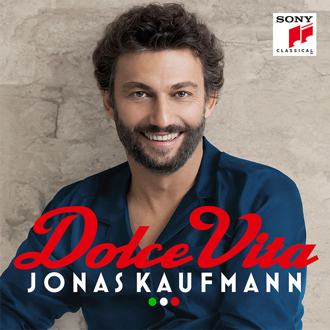|
|
|
|
|
|
|
|
|
Opera News, February 2017 |
| Joanne Sydney Lessner |
|
Dolce Vita
|
 |
 When
was the last you heard anyone sing Nino Rota's "Parla piu
piano", better known as the theme from "The Godfather"? Even if
you have heard it lately, you've probably never heard it sung
more seductively or tenderly than Jonas Kaufmann does here. When
was the last you heard anyone sing Nino Rota's "Parla piu
piano", better known as the theme from "The Godfather"? Even if
you have heard it lately, you've probably never heard it sung
more seductively or tenderly than Jonas Kaufmann does here.
Like a family owned restaurant that keeps Mama's favourite
off the the menu dishes coming in a steady stream, the robustly
romantic tenor serves up a delicious and surprisingly varied
meal of Italian and Neapolitan songs.
From the opening of
Lucio Dalla's haunting "Caruso", there is no choice but to give
oneself over to Kaufmann's rich, impassioned, musical
interpretations. He knows when to apply his irresistable
Italianate cry, as in "Un Amore Cosi Grande", "Musica proibita",
and the aptly titled "Passione", but the less demonstrative
songs are in some ways more satisfying. Kaufmann's ease with
language is evident, especially in his light conversational
approach to the charming "Voglio vivere cosi". In "Il Canto" he
begins with a soft feline purr, and even in the song's climax,
his passion remains in check, in keeping with the limited arc of
the song.
"Parlami d"amore, Mariu" has a lovely liquidity,
and his whispered, intimate final phrase is magical.
Kaufmann logs his own comparatively restrained renditions of
overrecorded entries such as "Non ti scordar di me", "Torna a
Surriento" and the omnipresent "Con te partirò". Even in
"Volare", immortalised for a certain generation by Sergio
Franchi's kitschy 1976 car commercial, Kaufmann manages to
project a directness and sincerity more commonly associated with
a soul baring aria such as "Che gelida manina".
The
delicate "Rondine al nido" conjures up images of a quiet moment
in a romantic movie. The contemporary pop song "Il libro
dell'amore" may be a step beyond Kaufmann's stylistic
flexibility, but it's a gentle reminder that the Italian love
song still thrives in the land of 'la dolce vita'.
Ascher
Fisch leads the Orchestra del Teatro Massimo di Palermo with
right combination and schmaltz.
|
|
|
|
|
|
|
|
|
|
|
|
|